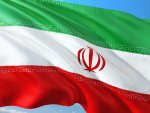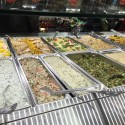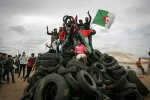![]()
By Abdennour Toumi — Paris – France
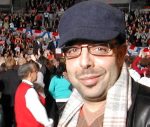
The “Charlie” spirit still haunts France’s politicians, media, academicians and streets. France pre-January 7/15 is no longer France post-January 11/15. Meanwhile on the avenues, in the banlieues (suburbs), and Sunday markets everything seems to be going at a normal pace, and life moves on. Still the tension is there and one can feel it, to some extent even live it, with any verbal altercation.
I witnessed two events that made me feel the anti-sentiment against Muslims, Arabs, and Algerians is exponentially high. One occurred in the RER involving a group of men and women, français de souche (pure French).
They were visiting the Agricultural Exhibit. It happened that night I took the late RER B line. I heard many cheap jokes about the Blacks and Arabs. Later the comic who was on stage (I must say he was in his fourth if not fifth glass of wine) stared at me, hypocritically smiling, and told me, “I am not a racist.”
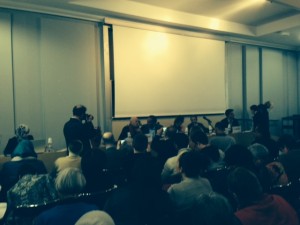
Today in St. Germain Bd and Rue du Bac, I witnessed a dispute over a parking space between the driver of a delivery truck who looked Arab and a middle-aged French White in a classic Mini. The scene was surreal; the White French told the truck driver, “back off (dirty Arab),”and the reaction of the truck driver triggered like a gun shot.
All this not to mention that the F.N. is claiming 33% in recent election polls.
Yet there are people of good will and intention on both sides of this insoluble political equation, members of Initiative and Change, a movement composed of people from many cultures whose aim is to realign the social cohesion and create links of trust between people of different cultures. Basically they are striving for global social inclusion.
Initiative and Change organized an afternoon open discussion and invited a dream-team panel to explore the theme “Freedom of Speech,” as proof of the social rupture with the participation of the sociologist Edgar Morin, the Islamologist, Tareq Ramadhan, and Jean Baptiste de Foucaud, a highly-placed public servant. These three distinguished panelists alone were enough to carry the day but it was another panelist, Camille Besse, a Charlie Hebdo cartoonist, who seemed totally lost in the substance of the debate which the moderator of the conference methodologically reframed.
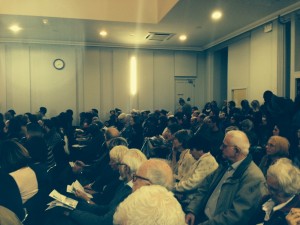
The terms “Dialogue and Responsibility” had the lion’s share of this thorny discussion. Professor Ramadhan spoke at length about the responsibility of the politicians and the media, the latter for being biased and using the double standard paradigm toward Muslims and Arabs. He was very critical of the social public policy that has been applied for the last 30 years and the stigmatization of the youth in the banlieue (les jeunes de la cité). As he put it, “…I have been hearing this phrase for the last 30 years even though these young people are no longer immigrants, are French and North African or Black origin…” He emphasized the conjunction “and” rather than the preposition “of” the origin.
Professor Morin focussed on “Freedom of Expression” and specified he is for an absolute freedom in this regard, whereas Professor Ramadhan stated he is for a relative freedom utilizing law enforcement to ensure everyone is responsible for his actions and speech. Later Mr. Foucaud spoke about forms of exclusion which leave people powerless. As a result, the misunderstanding of the “other” leads directly to ideological conflict, while Professors Ramadhan and Morin agreed freedom of expression does not include offenses against another’s religion.
The context of “Charlie” to some extent almost overran the narrative of the panelists’ discussion. There was some tension expressed in some attendees’ questions addressed to the Charlie Hebdo journalist who defended her newspaper’s editorial line and humor. She mentioned that the paper is pro-Palestinian, as if the audience wanted to know this editorial detail, but also aware that the former editor-in-chief converted to the neo-con ideology …
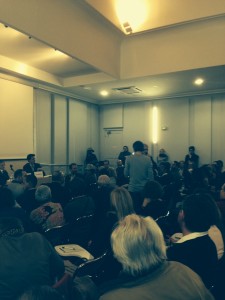
The three male panelists agreed that feeling humiliated leads to religion as an element of cultural attachment and identity. One must think about the consequences when taking this element into consideration out of context. Here lies the truth, the truth that heals and not the imposed ideas about secularism and freedom of expression. On this level Muslims feel constantly harassed by the media mocking Islam and Muslims. In later remarks Professor Ramadhan summed up the frustration and the humiliation of Muslims: “We are the Republic, we are not ‘Charlie,’ we live together and under those presumptions it creates a mutual suspicion.”
The message of the three panelists was clear in its focus on pedagogy and education, starting by teaching the concept of citizenship to all citizens and launching a creditable dialogue of reason, not reaching out through emotion which, alas, mainly overtakes reason.
It was a crowded room at the Social Museum, full of shining innocent faces reflecting different memories, cultures and age groups. It is true the sentiment of optimism seems lost in France today. But there is a ray of hope that might emerge from this kind of initiatives which may provoke change and provide solutions whether inter-cultural or socio-economic in nature. Certainly as Mr. Foucaud put it, “unemployment in itself is a source of exclusion.”
The solution, however, is not in the hands of the politicians and the media (cartoonists), because for them, the “other” has become a lucrative business and an easy target. Unlike the sincere academicians and social movement organizations, there are those who “get it.” Yet the problem is not the path that is difficult but the “difficult” is the path itself.


- The Israeli-Palestinian Conflict: Is the Neither-Peace-nor-Security As-sumption Dominating Again? - June 7, 2021
- Algeria: “I Can See Clearly Now” - August 5, 2019
- Majesty Mohammed VI and General Gaïd Salah Tear Down This Wall! - July 29, 2019


















